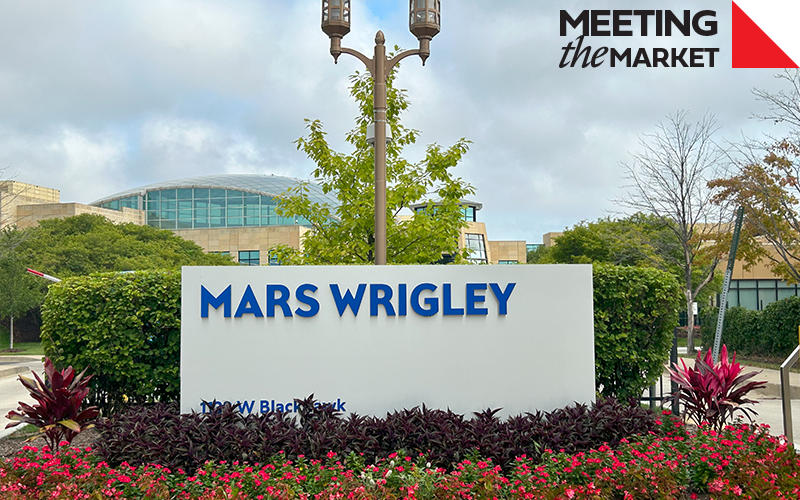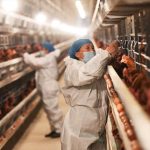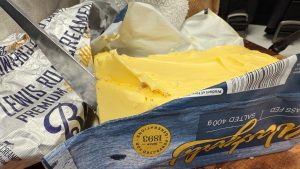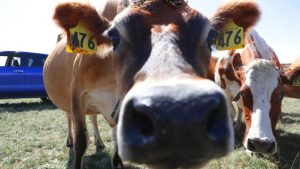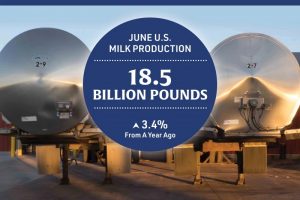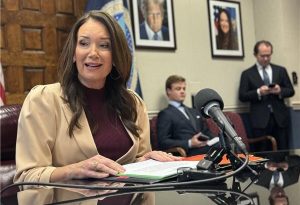
Mars Snacking, via Fonterra, is a huge consumer of New Zealand’s clean green product.
A senior executive of one of New Zealand’s largest dairy customers, Mars, is applauding sustainability efforts by NZ dairy farmers and is urging them to continue working with their customers.
Srikanth Ramachandran, Mars Snacking’s global category director for dairy, said Mars is similarly improving its sustainability, and he acknowledged gains made by pastoral farmers despite significant challenges.
Speaking to Farmers Weekly in Chicago, Ramachandran said continuous improvement will come from farmers embracing new tools and systems as they become available. He said farmers are not alone.
“We at Mars share their sustainability mindset, which is why we are supporting NZ dairy farmers.
“But we need to go further and drive continuous improvement on farms so NZ can retain its production advantages. It is not just about driving environmental impact but also making it economically viable.
“We need to continue to make progress on farms.”
Dairy is Mars Snacking’s second-largest greenhouse gas contributor behind cocoa.
Mars Snacking has a goal of halving its greenhouse gas emissions from a 2015 baseline by 2030, which will impact NZ dairy farmers by virtue of Fonterra being its largest global dairy supplier.
”Dairy and cocoa are the top two sources of emissions for Mars Snacking.
“Cocoa growers are making progress reducing their emissions and as dairy we have a huge potential to make a significant impact.”

Raw ingredients used by Mars Snacking contribute roughly 60% of its total emissions.
Ramachandran, who regularly visits NZ, acknowledges that NZ has the world’s lowest dairy production greenhouse gas footprint, but said housed-cow farm systems are likely to have earlier access to methane mitigation technology than pastoral.
Retaining that title requires NZ to relentlessly chase farm emission reduction tools.
“It’s a mindset to want to continuously drive a reduction of emissions on farm,” he said.
The ace card for Fonterra suppliers is the extensive farm-level database, which he said provides a foundation to determine the volume and source of emissions.
“It gives farmers a huge advantage. You can’t improve what you can’t measure.
“It will also help us set up an incentive or rewards system that is objectively based because we know exactly what that starting point is.”
Mars’s sustainability drive comes from its owners, the Mars family, but is increasingly raised by customers
Ramachandran said sustainability is part of the company’s DNA, which means balancing both the financial and societal sides of ledgers.
In hand with that is a mutuality policy of sharing benefits throughout the supply chain.
“Shared benefits will endure,” said Ramachandran.
“We can’t do something today that has a cost tomorrow, so there has to be benefits across the supply chain.”
Mars is investing NZ$75 million over the next three years in dairy sustainability alone under a “Moo’ving Dairy Forward” programme.
It includes farm-level investment in programmes alongside dairy companies Fonterra, Land O’Lakes, Interfood and Friesland in methane emission reduction, manure management and feed production.
With Fonterra it is exploring use of the asparagopsis seaweed as a feed supplement to reduce methane and in Poland it is launching one of the first and largest Bovaer feed additive trials with Interfood and Mlekovita.
“We want to work with you to deliver sustainability in the long term,” Ramachandran said to NZ dairy farmers.
In a further example of how seriously Mars is taking sustainability, he said remuneration for leaders is linked to progress against Mars’s sustainability goals.
“The approach here is that each manager has to own and drive performance.”
This multi-pronged focus has helped the company achieve a 16% net reduction since 2015 – while the business has grown 60%.
Ramachandran said sustainability is rated equally alongside quality when negotiating supply contracts.
“Quality is most critical because the way we use dairy products is very sensitive.
“But in the last four to five years we now anchor sustainability in equal weight to quality.
“So there are two boxes we now have to tick.”
Mars Snacking, of which dairy is a key ingredient, is a NZ$29 billion business that has brands such as Bounty, Celebrations, Wrigley’s gum, M&M’s and Snickers.
It is part of Mars Inc, a NZ$80bn-plus family-owned business, with a diverse and expanding portfolio of pet care products and veterinary services, snacking and food products.
More: Wallace is visiting seven countries in six weeks to report on market sentiment, a trip made possible with grants from Fonterra, Silver Fern Farms, Alliance, Beef + Lamb NZ, NZ Meat Industry Association and Rabobank. Read more about his findings here.
You can now read the most important #news on #eDairyNews #Whatsapp channels!!!
🇺🇸 eDairy News INGLÊS: https://whatsapp.com/channel/0029VaKsjzGDTkJyIN6hcP1K
